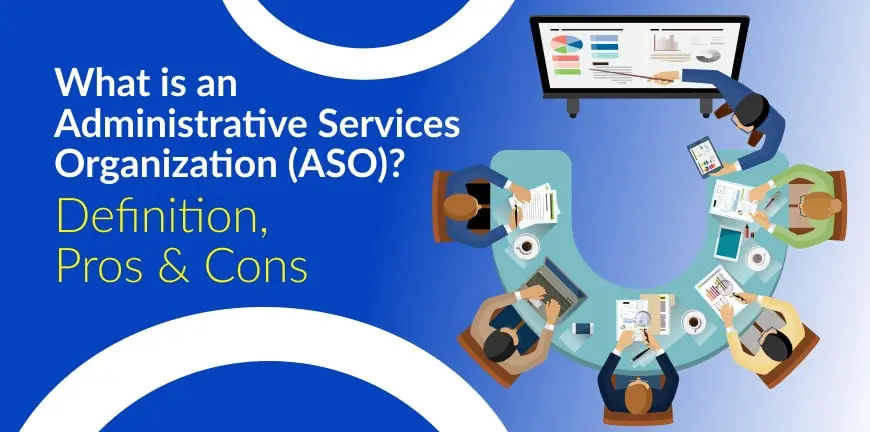
Learning and Development: A Comprehensive Guide
22/09/2025
What is Zoho Creator: Features & Benefits Explained
24/09/2025- Understanding HR Audit
- Significance of HR Audit
- What Are the Different Types of HR Audit?
- Comprehending the HR Audit Procedures
- Key Benefits of Conducting an HR Audit?
- Areas Evaluated During HR Audit
- Common Challenges in HR Auditing
- Role of HR Audit in statutory compliance
- HR Audit Checklist
- Maximizing the Value of an HR Audit
- Latest Trends
- Frequently Asked Questions
The modern workplace is no longer static. It is metamorphosing to the greatest extent possible. Organizations must cope with the myriad changes in aspects such as laws, work models, and digital revolutions every day. In this scenario, HR audit comes in like a trusted friend who is looking out for you and guiding you as an organization to stay compliant and make your workplace healthier.
Let us walk you through a comprehensive HR audit guide that will give you an insight into the type of process, benefits, significance, and role of HR audit in today’s workspace:
Understanding HR Audit
An HR audit is a structured review process of a company’s HR rules, practices, procedures, etc, to determine how effective the systems are. The evaluation is about how the HR operations of an organization adhere to legal compliance, catering to its business objectives. The process involves a thorough assessment of various facets, including hiring, managing performance, employee relations, and complying with regulations.
Significance of HR Audit
Hr audit is crucial for all organizations. Every business has its own HR structure and policies, and the audits are done based on individual requirements. Here are some of the reasons why they are essential:
1. Maintains Legal Standards
In this landscape of constantly changing rules and laws, a business must adhere to the new norms. You, as an organization, must take proper steps to understand and comply with them. Hr audits can guide your HR management teams with the process and safeguard you from hefty penalties and legal consequences.
Used Case- In a study, a 900-bed multi-specialty hospital in Pune was audited for HR processes like recruitment, training, system audits, memos, etc., benchmarked against NABH (National Accreditation Board for Hospitals & Healthcare) guidelines.
2. Enhances Brand Image
A well-organized Hr audit can accelerate an organization’s reputation. It will identify areas of improvement, discrepancies in facets like recruitment, employee experience, retention, etc. By highlighting the areas, it can help organizations develop new policies and plans to address the gaps and design new norms for better employee experience. This creates a healthy and compliant workspace, elevating the brand image.
3. Strengthens Business Goals
The audit helps in smoothly aligning organizational objectives with HR practices. This can happen when areas are identified where HR teams can support the achievement of organizational objectives in a better manner by focusing on areas that might be lacking support, like acquiring talent, retention, or training and development.
4. Boosts Operational Excellence
HR audits play a vital role in identifying surplus, risks, inefficient structures, etc. A proper structuring of these processes can help companies save costs, time, and accelerate productivity. An efficient recruitment process results in the recruitment of the right kind of talent, improved payroll structures, error-free processes, and eliminated compliance risks.
5. Builds Employee Loyalty and Collaboration
An organization with happy employees will inevitably grow and achieve its goals. Employees want their work journey to be inspiring and encouraging. With robust Hr practices and policies, organizations can implement them, and employees can see that there is consistency and constant room for improvement and learning, they feel respected and motivated to collaborate better and contribute their best, driving growth.
What Are the Different Types of HR Audit?
The mechanism of HR audit can be categorized into the following types. Let’s take a look:
1. Compliance Audit
This audit approach reviews and confirms if an organization’s HR policies are compliant with the local and government laws and regulations. This type protects companies from the risks of legal problems. The auditor verifies a gamut of practices, including labour laws, workplace security, etc. As per the survey, over 65% of HR audits focus on compliance with federal, state, and local labor laws, particularly concerning wage and hour issues (e.g., overtime, minimum wage laws), employment discrimination, and healthcare benefits.
2. Functional Audit
This kind of audit reviews specific HR functions to ensure full proof efficiency and effective work progress. The process involves a thorough evaluation of gaps, inefficient areas, non-compliant practices, etc. A function-centric audit helps organizations craft structures providing insights to meet business objectives.
3. Operational Audit
This audit focuses on a comprehensive evaluation of all the HR processes and operations. The key objective is to identify discrepancies, errors, gaps, inefficient structures, etc, and aspects that are losing out on resources, money, and time. The aim is also to align the practices with the company’s goal.
4. Strategic Audit
This audit is a smart audit that reviews the strategies that HR has designed and positioned to drive accelerated operations. It ensures that the overall business goals are achieved efficiently and focuses on the reasons the HR has crafted and implemented specific practices.
5. Policy or SOP Audit
A policy audit involves auditors assessing the policies and guidelines that HR teams have designed and implemented. The aim is to determine how effective, efficient, and useful the policies are in the present scenario. The audit also provides a picture of how the polices are facilitated across departments.
Comprehending the HR Audit Procedures
- Establish Objectives: The first step for HR auditors is to structure clear goals and opportunities, focusing on the specific types of audits. They usually consider factors like company visions, regulatory needs, and problematic areas.
- Collect Relevant Info: Auditors then accumulate accurate data and details like documents, processes, policies, performance assessments, and required records.
- Conduct Interviews: The third step is to interview significant individuals within the organization, like HR heads, team leaders, employees, etc, to get a fair idea about the work environment, HR practices, challenges, etc.
- Evaluate Documentation: A thorough review of documents and records is conducted to gauge if the HR department is properly complying with legal requisites, if the policies are consistent, and the procedures are effective.
- Review Data: A thorough analysis of data is done after the collection during the audit, considering various parameters to identify concerning areas, latest trends, and consistent patterns.
- Assess shortcomings and threats: This step is essential to spot gaps and inconsistencies in the areas of compliance and identifying potential risks after assessing the potential information gathered across departments.
- Craft an Action Plan: A comprehensive plan is drafted by HR auditors after completion of the above steps. They highlight suggestions and recommendations for organizations to follow so that they can address issues and risks.
- Implement Action Plan: The plan is finally implemented, considering an array of factors to enhance the productivity of Hr practices and eliminating risks.
- Monitor and Evaluate: The last and final step is to constantly monitor and review the progress of the measures taken and plans implemented, gathering feedback and making changes for desired results.
Key Benefits of Conducting an HR Audit?
Let us give you some insight into the advantages of an HR audit:
Accelerated Compliance- Audits are significant for companies to keep up with the changing laws and rules related to compliance, ensuring all Hr procedures comply with the regulations effectively, avoiding any legal complications.
Enhanced HR Efficiency- The audits ensure the overall organization’s well-being by monitoring that Hr practices cater to the objectives of the business. This results in improved manpower planning, team management, and succession structuring.
Fosters Positive Work Environment- The audits recognize issues related to employees and help in resolving conflicts. The approach also suggests improvements in communication styles, uplifting engagement.
Industry comparisons and Proven Strategies- The audits enable companies to compare the current Hr practices against sectoral benchmarks. Empowers organizations to adopt world-class practices and smart progressive plans.
Manages Legal Hazards- The audit is the best approach that spots weak areas in hr processes. They provide impactful recommendations to improve, manage the risks involved in such areas, preventing legal and operational consequences.
Areas Evaluated During HR Audit
- Documentation and Adherence- Ensuring compliance with laws, reviewing data, and documents
- Talent Journey- Evaluating recruitment and onboarding processes, Analysing training and development impacts.
- Salary and Benefits- Ensuring robust salary and benefits structures
- Staff Relations- Reviewing the staff culture and assessing whether the employee issues, grievances. Relations are managed properly.
- Organizational HR Frameworks- Evaluating the overall Hr systems and practices, along with ensuring that the practices comply with business goals.
Common Challenges in HR Auditing
Although HR audit systems are highly beneficial, they come with a set of challenges that you need to look for. Here are some of the challenges:
Incomplete and haphazard documents and data make it difficult to acquire accurate information.
- Old systems and outdated HR policies facilitate the risk of noncompliance and inefficient practices.
- A company that neglects legal norms and does not comply with rules might face legal hazards
- If the staff is hesitant about being a part of the audit, then it might hinder the audit process, as they might fear increased work pressure or the risk of losing their jobs.
- Sketchy audits can miss out on employee grievances, leading to dissatisfaction and adversely affecting productivity.
- Thorough audits can be hampered if organizations provide insufficient time and resources.
- Weak Hr structures can slow down audits, show erratic and error-laden reports, jeopardizing the review process.
Role of HR Audit in statutory compliance
- HR audit is integral to statutory compliance. Here are some of the reasons why:
- Ensures legal compliance
- Recognizes compliance gaps
- Alleviate legal risks
- Safeguards the company’s image
- Upgrade policies and practices
- Handles data security and accuracy
- Structures HR processes
HR Audit Checklist
| Audit Area | Checkpoint |
| Documentation & Records | Employee files are complete and organized
Job descriptions are up to date Payroll records are accurate and stored securely Leave and attendance records are maintained properly Emergency contact details are updated regularly |
| Statutory Compliance | PF, ESI, Gratuity, Bonus compliance
Labor law posters and licenses are displayed Timely submission of statutory returns Compliance with minimum wage and working hour regulations POSH policy in place and ICC formed |
| HR Policies & Procedures | HR policies are documented and accessible to employees
Disciplinary and grievance policies exist and are legally compliant
|
| Recruitment & Onboarding | Offer letters are standardized and legally compliant
Background checks and reference verifications done The onboarding checklist is followed for new hires |
| Performance Management | KPIs and goals are clearly defined
Performance reviews are conducted regularly Underperformance is documented with action plans |
| Training and Development | Compliance training (POSH, safety, etc.) completed
Training needs analysis is conducted Records of training are maintained |
| Compensation and Benefits | Salary structure complies with wage laws
Timely and accurate payroll processing Benefits (insurance, leave, etc.) are clearly communicated |
| Employee Exit Process | Exit interviews are conducted
Final settlements are processed per legal standards Company assets and access recovered |
| HR Strategy & Metrics | Workforce planning and succession plans are in place
HR KPIs are defined and tracked (e.g., attrition, cost per hire) |
| Employee Relations | The grievance redressal process is effective
Employee feedback is collected and analyzed Engagement and recognition programs exist |
| Data Privacy & Security | Employee data is securely stored, and access is controlled
HRIS complies with data protection laws (e.g., GDPR |
Maximizing the Value of an HR Audit
Organizations working with HR auditors utilize the process not just for monitoring compliance, but as an intelligent instrument to enhance the effectiveness of HR processes.
One of the objectives of HR audit by organizations is to maximise its value, and for that, the primary step is to create a clear structure related to the purpose of the audit, entailing elements like compliance checks, process enhancement, etc.
The second step is to involve the key company heads across departments and organize the checklist according to laws, industry standards, and the company framework.
If required, organizations can take the assistance of external party auditors for their expertise and fresh perspectives. The key to a successful audit is to communicate the findings transparently.
Hr audit is a process that is a driver for continuous growth and progress for a company, helping them to attain excellence.
Latest Trends
| Trend | Figures / Findings | Implication for HR Audits |
| GenAI & Automation in HR | 45% of Indian organisations have partially or fully implemented Generative AI in HR.
|
Audits will need to cover data usage, algorithm fairness, privacy, accuracy, and oversight in AI‑driven processes. |
| Payroll & Compliance in HR Tech Demand In 2024 | 76% of HR software demand in India is driven by payroll + compliance features | Compliance with tax, labour laws, and payroll accuracy is are high priority, so related areas will likely feature heavily in HR audits. |
| Priorities: Skills, People Management & Automation | Indian HR leaders identify improving people managers’ skills and automating HR processes as top priorities; they focus on workforce planning. | Audit scope likely rising in performance management, training, manager capability, and how HR systems support these. |
| Pay & Compensation Analytics, Pay Equity | 60% of employers are looking to leverage AI for salary benchmarking, pay equity, etc., by 2028. | Pay fairness is already on the radar, so audit functions around compensation, bonus/incentive distribution, and equity are likely under scrutiny. |
| Digitization & HR Tech Integration | In reports, many companies say that digitizing HR systems, integrating HR tech, and improving HR service quality are urgent. E.g., “Empower & Evolve” report: 82% of CXOs in India say HR‑tech needs better integration. | The audit will need to assess how well various systems (ATS, HRIS, performance, payroll) are integrated, whether data flows are clean, and whether processes are being automated properly. |
| Employee Engagement | Engagement dropped — for example, ADP’s “People at Work 2025” India found workforce engagement fell to ~ 19% in 2025 from ~ 24% in 2024. | Low engagement could be a symptom of HR gaps — onboarding, performance feedback, manager effectiveness, and benefits. Audits should include engagement processes and feedback loops. |
Frequently Asked Questions
1. What is HR Audit in HRM?
An HR audit process in an HRM is a structured evaluation of the overall Hr policies, processes, and programs to determine their efficiency and effectiveness.
2. What is the main objective of HR Audit?
The main goal of an HR audit is to review Hr policies and structures, ensuring legal compliance, effectiveness, and alignment with business goals.
3. How often should a company conduct an HR audit?
A company must conduct Hr audits annually, with frequent or focused audits for specific areas or during an organizational shift.
4. Why is an HR audit important for compliance?
The audit procedure is important for compliance, as it ensures adherence to HR policies and structures to local, state, and federal laws.
5. What happens after an HR audit?
After the completion of an audit, the findings are taken to the management for them to design an action plan for the effective implementation.
6. How can an HR audit improve company performance?
Hr audits enhance company performance by ensuring legal compliance, streamlining work plans, and uplifting employee engagement.
Contact Us For Business Enquiry

Rajkumar Shanmugam
Rajkumar Shanmugam is the Head of HR at ALP Consulting, bringing over 19 years of comprehensive HR leadership experience across India and international markets. His expertise spans talent acquisition, employee relations, performance management, compliance, and HR transformation. Rajkumar has a proven track record of driving people-centric initiatives, enhancing workplace culture, and aligning HR strategy with business goals. With extensive experience in US staffing operations and global mobility, he continues to lead organizational excellence through innovation and employee engagement.




